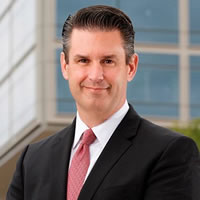Stanford Medicine
Leadership Retreat
RECLAIMING HEALTH IN 2021
May 21, 2021 | 1:00 – 5:00 pm PT
The COVID-19 pandemic changed life as we know it in 2020, yet this year will prove even more consequential.
Decisions today will decide health care’s future for decades to come. At a time that demands interdisciplinary collaboration, innovative approaches, and cutting-edge science, Stanford Medicine is poised to lead a better, more equitable, and preventive health care system.
AGENDA
1:25 – 2:00 pm
Preparing for an Uncertain Future
Amid a global pandemic, the future has never been murkier – or filled with more opportunity. In a fireside chat with Dean Lloyd Minor, Regina Dugan will reflect on her career – including leadership roles as the former Director of DARPA and VP of Engineering-Advanced Technology and Projects at Google – discuss how hardship has historically driven transformative change, and share keys for catalyzing a movement that meets this moment.
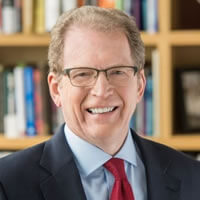
Lloyd Minor, Dean, Stanford School of Medicine | BIO
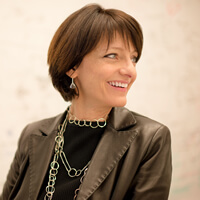
Regina Dugan, President and CEO, Wellcome Leap | BIO
2:00 – 2:30 pm
Basic Science Spotlights
Basic science underpins Stanford Medicine’s preeminence. In this session, four basic scientists will highlight their innovative research – a sampling of the groundbreaking work occurring in labs across Stanford Medicine.
Hijacking Blood Cells to Deliver Therapies: A Novel Platform for Neurodegeneration

Natalia Gomez-Ospina, Assistant Professor of Pediatrics (Genetics) and of Pediatrics
(Stem Cell Transplantation), Stanford School of Medicine | BIO
Using High-Throughput Polled CRISPR Screens to Identify New Cancer Drug Targets and Drug Combinations
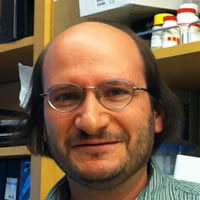
Michael Bassik, Associate Professor of Genetics,
Stanford School of Medicine | BIO
The Stanford Hospital Microbiome Observatory – Leveraging the Power of Microbes to Cure and Prevent Diseases

Ami Bhatt, Associate Professor of Medicine (Hematology) and of Genetics,
Stanford School of Medicine | BIO
Patient Earth: A New School of Medicine Mission
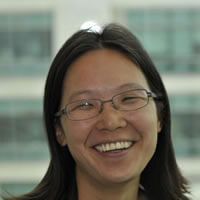
Ellen Yeh, Associate Professor of Pathology and of Microbiology and Immunology,
Stanford School of Medicine | BIO
2:30 – 2:40 pm
Break
2:40 – 3:10 pm
Update on Commission on Justice and Equity
Formed in the wake of George Floyd’s murder and other horrific instances of social injustice, the Commission on Justice and Equity has set out to identify how Stanford Medicine can strengthen diversity, equity, and inclusion practices and assert a national role in addressing health disparities. This update will share insights gleaned from interviewing the Stanford Medicine community and their recommendations for moving forward.

Rosalind Hudnell, Former VP, Global Corporate Affairs, Intel and President,
Intel Foundation | BIO
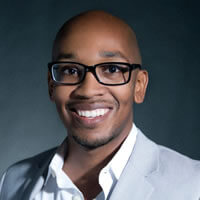
Terrance Mayes, Associate Dean for Equity and Strategic Initiatives, and Executive Director
of Commission on Justice and Equity, Stanford School of Medicine | BIO
3:10 – 3:55 pm
Available Online & In-Store: Health Care’s new setting
For all the unpredictability of the past year, one thing is certain: “Where health care happens” has forever changed. The pandemic spurred record investment in digital health in 2020 as well as numerous initiatives by national retailers to make care more accessible for millions of people. This panel will discuss how biomedicine is poised for transformation as health care’s setting expands beyond traditional boundaries.
Panelists:
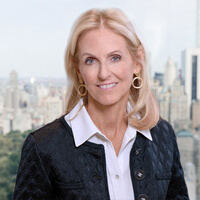
Annie Lamont, Co-founder and Managing Partner, Oak HC/FT | BIO

Tom McGuinness, Corporate VP, Global Healthcare, Microsoft | BIO

Thomas Van Gilder, Chief Medical Officer, Walmart | BIO
Moderator:
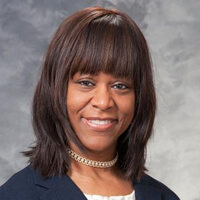
Carla Pugh, Professor of Surgery, Stanford School of Medicine | BIO
3:55 – 4:05 pm
Break
4:05 – 4:50 pm
What Happens Next – How We Build Back Stronger After a Global Pandemic
Our national COVID-19 response has catalyzed collaboration—among local governments, health organizations, and research institutions—on an unprecedented scale and to extraordinary effect. As we prepare for a post-pandemic future, we must resist returning to siloes and further cultivate collaboration to ensure that we build back stronger.
Panelists:
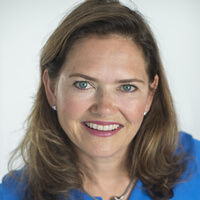
Amy Abernethy, Former Principal Deputy Commissioner, FDA | BIO
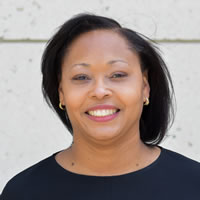
Alyce Adams, Professor of Epidemiology and Population Health,
Stanford School of Medicine | BIO
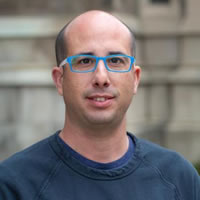
Aaron Gitler, Professor of Genetics, Stanford School of Medicine | BIO
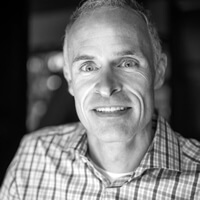
Bob Kocher, Partner, Venrock; Former Special Assistant to the President,
Healthcare and Economic Policy | BIO
Moderator:
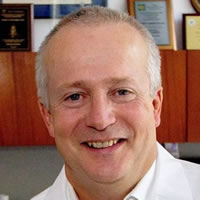
Bob Harrington, Professor of Medicine and Chair of the Department of Medicine,
Stanford School of Medicine | BIO
4:50 pm
Closing Remarks

Lloyd Minor, Dean, Stanford School of Medicine | BIO
4:55 pm
Program ends
(DoorDash dinner vouchers to be provided)
FAQs
The button will be activated at 12:30 pm PT on Friday, May 21st. If you visit the website before 12:30 pm, please refresh your browser and re-try the “Join Live Now” button. If this does not work, please use the Tech Support Chat on this website or email Marilena McCarty (mccartym@stanford.edu).
To optimize your virtual experience, please make sure you have the most updated version of Zoom installed.
https://zoom.us/download
A link to a DoorDash voucher was sent in a communication from the Office of the Dean on May 17 and will be resent the morning of the retreat. Email Kelly Tsutsumi (kelly.tsutsumi@stanford.edu) if you are unable to locate your voucher.
If you are having technical difficulties, please use the Tech Support Chat on this website or email Marilena McCarty (mccartym@stanford.edu).
This is an invitation-only event. Please contact Kelly Tsutsumi (kellytsu@stanford.edu) if you have any requests or questions.
We encourage you to enable your video. You will be able to unmute yourselves during open sessions.
